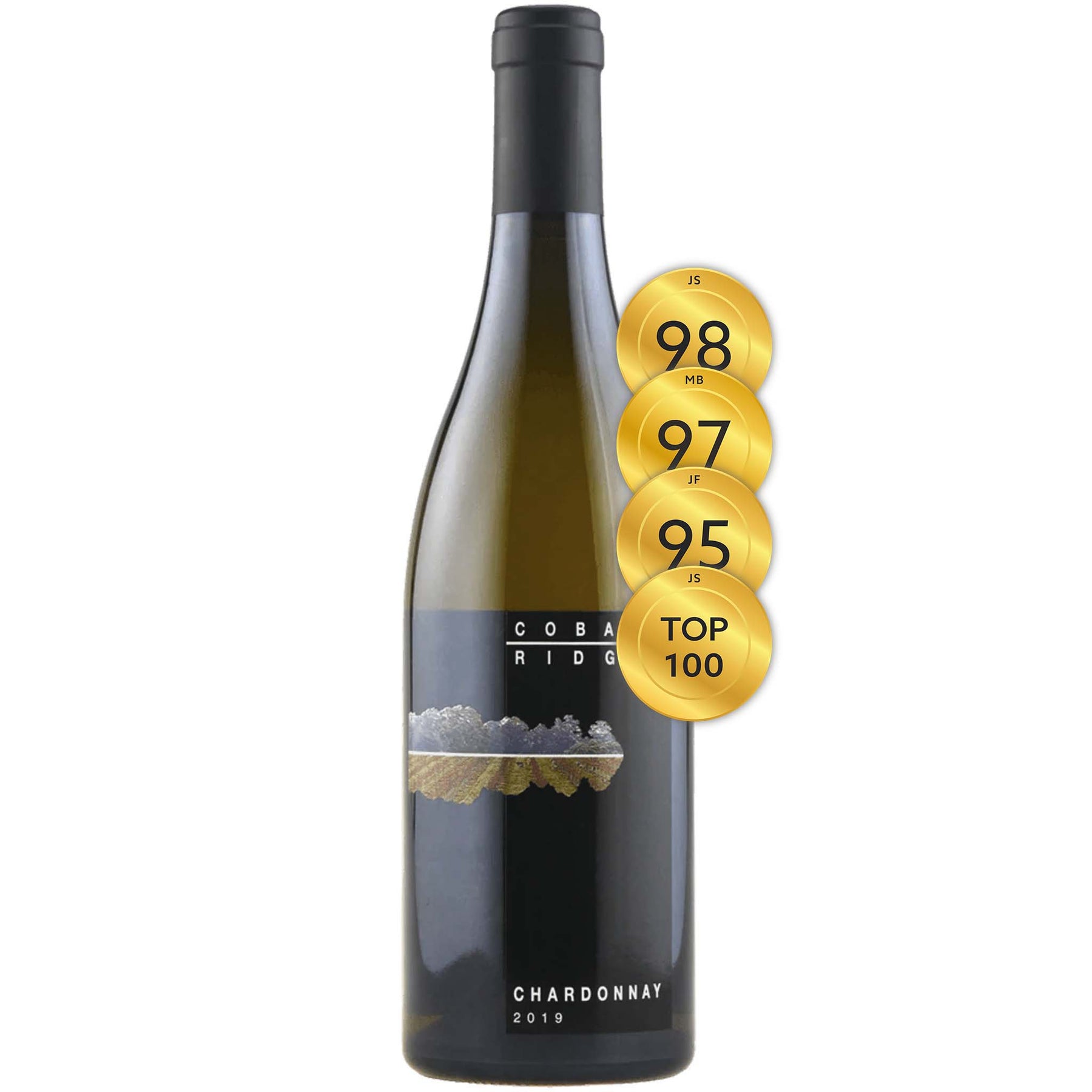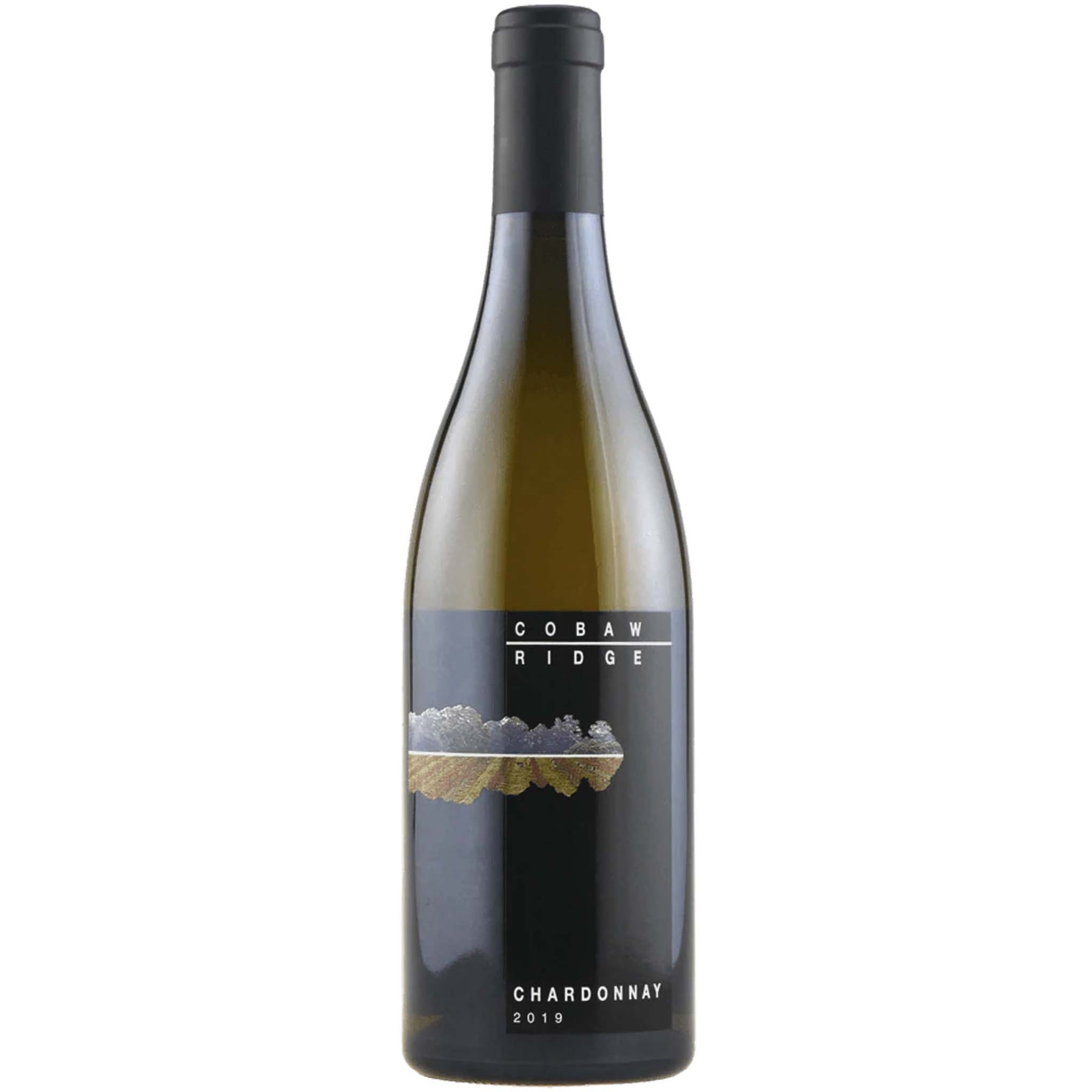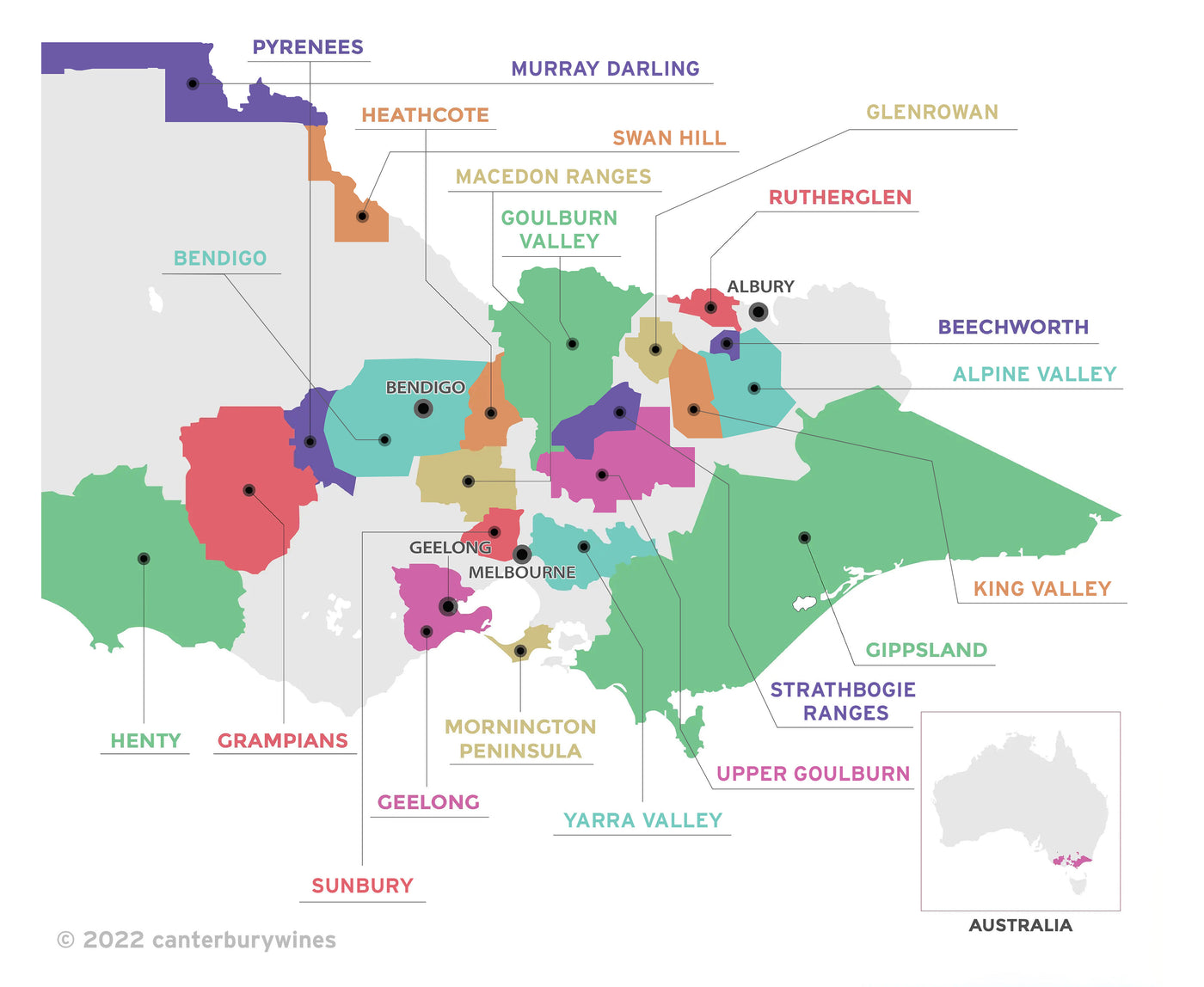

Cobaw Ridge Chardonnay 2019
Style: White Wine
Closure: DIAM Cork
Cobaw Ridge Chardonnay 2019
Warehouse
34 Redland Drive
Vermont VIC 3133
Australia
Critic Score: 98
Alcohol: 13.9%
Size: 750 ml
Drink by: 2030
James Suckling Top 100 Wines of Australia 2021
"So compelling and delicious to drink. So, so good." Mike Bennie
"One of Australia's great chardonnays has arrived." James Suckling
In 1985, Alan and Nelly Cooper established their Macedon Ranges vineyard, positioned in a natural amphitheatre 610 metres above sea level in the heart of the Macedon Ranges. They produce premium cool climate wines that are 100% estate grown and are the first winery in the region to be certified organic and biodynamic.
"So compelling and delicious to drink. Far out. The tension, the length, the understated juiciness, the freshness and the general sense of energy. So, so good." Mike Bennie
"100% certified Organic / Biodynamic, 32 yr old Cobaw Ridge (clone-Penfolds 58) Chardonnay vines, fruit hand harvested and picked when possible according to the lunar cycle. The wine usually spends twelve months in French oak, a mixture of 228 / 500 barrels and around 20% new. No lees stirring in situ. Topped every seven days. Wine is pumped out of barrel the day after picking the new vintage fruit, so the barrels are never empty. All fermentation lees are taken with the now mature wine. Allowed to come together and settle in tank on light lees for another two or so months. After this time in tank the wine has settled crystal clear and is very carefully racked off lees. Malo status is tested prior to bottling. No additions, fining, filtration or stabilisation are inflicted on the wine, other than, minimal sulphites just prior to bottling." Cobaw Ridge
Expert reviews
"This sits in a sweet spot of complexity with a reductive edge and a pithy grapefruit edge. Sliced lime and peach, too. The complexity is wrapped in so deep here. The palate has such intensity with glimmering acidity and sleek, long-driven freshness. Such purity here with really concentrated fruit. Acidity is salient. One of Australia's great chardonnays has arrived. Drink or hold." James Suckling, JamesSuckling.com - 98 points and Top 100 Wines of Australia 2021
"It's not just that it's so compelling and delicious to drink but that it gives a person on the end of the glass an insight into complexity of chardonnay without overt edifice of winemaking. Yep, it opens with some flinty, struck match sniffs that allude to technique, but the wine is more about the dimensions of grape flavour, minerally charm, savouriness from yeast and lees and the skinsy chew of taut berries. It smells and tastes a little like sea spray has whipped over green apple juice that's had hazelnuts steeped in it all. Far out. The tension, the length, the understated juiciness, the freshness and the general sense of energy. So, so good. Drink 2021-2030." Mike Bennie, The Wine Front - 97 points
"Coming off the back of the pristine 2018, this has a deeper mid straw hue, but is still very fresh and tight. A hint of richer fruit – poached quinces, finger lime and lemon curd – but this still is kept on a tight leash. The palate opens up to distinct savoury, flinty and nougat flavours, then a mouth-watering finish. Drink by 2029." Jane Faulkner, Halliday Wine Companion - 95 points
Awards
James Suckling Top 100 Wines of Australia 2021
About the winemaker

Perched high in the granitic cool of Victoria's Macedon Ranges, Cobaw Ridge is a certified biodynamic vineyard specialising in varietal bottlings of chardonnay, pinot noir, syrah and lagrein, as well as a syrah rosé that is often touted as one of the best in the land. Alan Cooper has always farmed sympathetically, but it is since the conversion to organics, then biodynamics that he believes the vine resilience, fruit quality, depth of flavour and expression of site has dramatically improved.
When Alan and Nelly Cooper first planted their Cobaw Ridge vineyard in 1985, they were amongst a small group that was testing the grape-growing potential of the lofty cool of the Macedon Ranges. In a region that is regarded as the coldest on the mainland, that viticulture was always going to be a marginal prospect, and especially with fledgling vines and somewhat cooler weather patterns than in the last two decades.
"So many people questioned the long-term viability of the Macedon Ranges in those early days," says Alan Cooper, reflecting on how far they've come over the last 36 years. "But now we are, I think, very much in the box seat to continue serious cool climate winemaking,"
There was a decent focus on sparkling wine from some of the pioneers that preceded the Coopers, but their gaze became fixed on table wine, with chardonnay, pinot noir, cabernet and shiraz planted to the granitic soils in the natural amphitheatre of their site that sits at over 600 metres elevation. Alan Cooper is a fifth-generation farmer, and while they established the vineyard with an eye to organics, juggling city work while managing the vines meant that minimal herbicides were used, but never pesticides.
With the house built and the vineyard established, city life was relegated to the past and that path to organics was fulfilled. They officially started transitioning in 2005, becoming certified in 2009, with biodynamic certification confirmed in 2011. "We have really forged our own path locally being the first certified organic-biodynamic producer in the Macedon Ranges," says Cooper. "Nice to think that a lot of others are now becoming like-minded also."
The site now consists of 5 hectares of vines, with various less-successful clones and varieties (cabernet was an early victim) over the years, including vermentino, yielding to the vine mix of chardonnay, pinot noir, syrah and lagrein. That last variety, which is a key red grape in Italy's Alpine region of Alto Adige, was grafted in 1993, being the first to trial it in Australia. Lagrein has proven a great success, with their version seen by many as the benchmark for this country.
In the vineyard, biodynamics is pivotal to the success over the years, with Cooper also noting that being as transparent as possible through official certification is critical, as it gives the end consumer confidence in the integrity of the operation. "The number one thing is that we have embraced being organic – biodynamic, fully certified now for ten years," he says. "We prefer to walk the walk, rather than talk the talk."
The Cobaw site has a north facing aspect that, combined with the nature of the amphitheatre and the granitic soils, creates a unique mesoclimate that generates very distinctive fruit and wine. "Over the years it has always been purely about 'here'," says Cooper. "True terroir if you like. Altitude of 615 metres plus, so true cool climate plays a huge part in what we do. It's a sunny north-facing warm site in a cool region but still gives superb high acidity."
Circling back to biodynamic farming, Cooper believes that the viticultural methods have made both the vines and the fruit more resilient. "The vines now seem to be a whole lot more self-sufficient," he says, "close to zero irrigation in our super-free-draining soils must mean the vines have worked a long way down to sustain themselves. Thicker leaves and berry skins all lead to less disease pressure and more resultant flavour in the wines. We are growing more flavour!"
Cooper employs some irrigation but typically only for establishing young vines through a drip system, with most vines on the property also on their own roots. Vineyard operations are extensively manual and as sympathetic as possible. "Being aware of the fragile nature of our soils and treading as lightly as possible in all our vineyard operations is a given," says Cooper. "This year I am really looking forward to the native grasses stopping growing, so I can get on top of things. Hopefully, my new wangle-fangled under-vine machinery works as well as it does on YouTube!"
Over 35 years of low-impact farming, a decade of biodynamics and more than 15 years of strict organics, Cooper believes his site has never been healthier and the wines have never been better as a result. "The vineyard delivers all the necessary requisites for great winemaking, so no need for any additions to the wine except a bit of SO2," he says. "So, with nil agro-artefacts in the fruit and zero additions in the wine, it all leads to purity of flavour. At the end of the day what we strive for is flavour that could only come from here!" younggunofwine.com
About the winery

In 1985, Alan and Nelly Cooper established their Macedon Ranges vineyard, positioned in a natural amphitheatre 610 metres above sea level in the heart of the Macedon Ranges. They produce premium cool climate wines that are 100% estate grown and are the first winery in the region to be certified organic and biodynamic.
The 5ha vineyard is planted to Chardonnay, Pinot Noir, Syrah and Lagrein. Cobaw Ridge was the first to plant Lagrein (which is a key red grape variety in the Italian region of Alto Adige)in Australia in 1993. The vineyard has a north facing aspect that, combined with the nature of the amphitheatre and the granitic soils, creates a unique microclimate that produces very distinctive fruit and wine. "Over the years it has always been purely about 'here'," says Cooper. "True terroir if you like. Altitude of 615 metres plus, so true cool climate plays a huge part in what we do. It's a sunny north-facing warm site in a cool region but still gives superb high acidity."
Everything is done so as to promote and preserve the full integrity of the unique vineyard terroir. After a decade of biodynamics and more than 15 years of strict organics, Cooper believes his site has never been healthier and the wines have never been better as a result. "The vineyard delivers all the necessary requisites for great winemaking, so no need for any additions to the wine except a bit of SO2. With nil agro-artefacts in the fruit and zero additions in the wine, it all leads to purity of flavour", says Cooper. The biodynamic farming and viticultural methods have made both the vines and the fruit more resilient. "The vines now seem to be a whole lot more self-sufficient. Close to zero irrigation in our super-free-draining soils must mean the vines have worked a long way down to sustain themselves. Thicker leaves and berry skins all lead to less disease pressure and more resultant flavour in the wines. We are growing more flavour!"
With a fully equipped winery, right down to a small bottling line, the Cobaw Ridge operation is very much an in-house one, with a solar system recently installed to service the power needs of the winery, cellar door and new accommodation facility as well as the Cooper's home. That new accommodation is part of a future-proofing plan, says Cooper, "to allow for a secondary non-wine related income stream to assist with our long-term viability."

Victoria
Victoria is home to more than 800 wineries across 21 wine regions. The regions are Alpine Valley, Beechworth, Bendigo, Geelong, Gippsland, Glenrowan, Goulburn Valley, Grampians, Heathcote, Henty, King Valley, Macedon Ranges, Mornington Peninsula, Murray Darling, Pyrenees, Rutherglen, Strathbogie Ranges, Sunbury, Swan Hill, Upper Goulburn and Yarra Valley.
Victoria's first vines were planted at Yering in the Yarra Valley in 1838. By 1868 over 3,000 acres had been planted in Victoria, establishing Victoria as the premier wine State of the day. Today, the original vineyards planted at Best's Wines are among the oldest and rarest pre-phylloxera plantings in the world.
Victoria's climate varies from hot and dry in the north to cool in the south and each wine region specialises in different varietals. For example, Rutherglen in the north is famous for its opulent Muscats and Topaque and bold reds, while the many cooler climate regions near Melbourne produce world class Chardonnay and pinot Noir. Victoria is truly a wine lover's playground.

